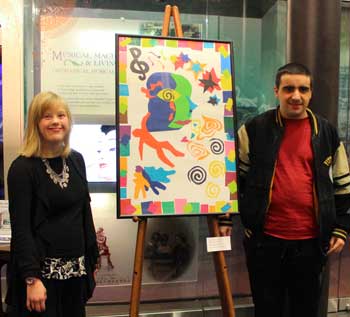
The community is invited to ECLC of New Jersey’s school for children with special needs for an art show on Tuesday, March 8, to celebrate the talents of students and staff at ECLC and to commemorate National Developmental Disabilities Awareness Month.
The exhibition will feature paintings, sculpture and mixed media artwork created by students, who are diagnosed with a range of disabilities, including autism spectrum disorder, Down syndrome, other intellectual disabilities or severe learning or language disabilities. It will also include some pieces by the school’s special-education teachers and other staff.
All are welcome to view the free exhibit and enjoy light refreshments on Tuesday, March 8, from 6:00 p.m. to 8:00 p.m., at the ECLC school located at 21 Lum Avenue, Chatham, behind the municipal building.
This art show reflects ECLC’s strong emphasis on community connections. Teachers bring students into the community as much as possible from walking trips into downtown Chatham to work/volunteering opportunities at local businesses.
This month, students took part in AccessABILITY, a four-day, special exhibit at the Morris Museum. The art show was part of the museum’s pioneering series that showcases fine art created by artists with disabilities.
Nearly 25 years ago, March was first proclaimed as “Developmental Disabilities Awareness Month.” In started in February 1987 by President Ronald Reagan. The proclamation stated in part, “I urge all Americans to join me in according to our fellow citizens with such disabilities both encouragement and the opportunities they need to lead productive lives and to achieve their full potential.”
